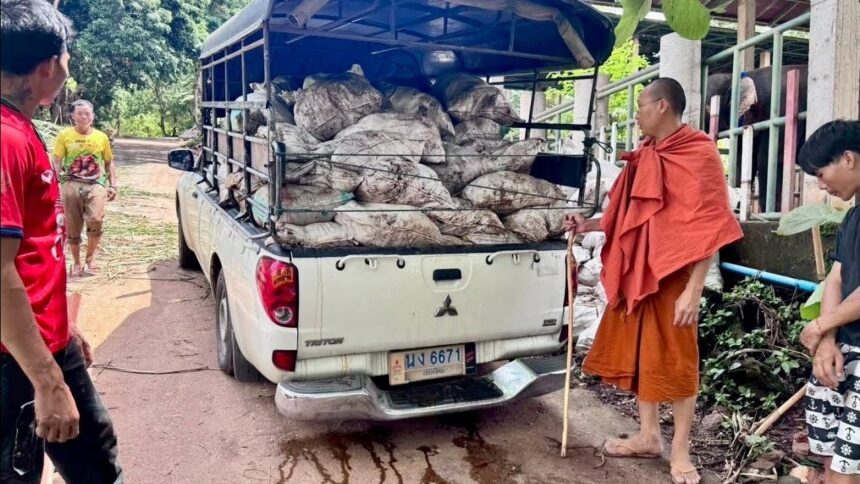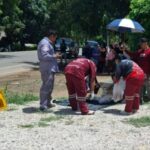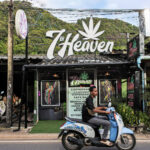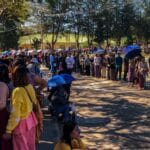CHIANG MAI – A monk in Chiang Mai, Phra Kru Sangharak Weerawat (known as “Phra Kru Odd”) from Wat Chedi Luang, has encouraged the Ban Chang Trakun Saen elephant village to start a unique project. Collecting elephant dung into organic fertiliser.
This fertiliser is then given to farmers practising organic growing methods in the area, and early results look promising.
Elephants eat a lot—about 10% of their body weight each day—mainly grass and fruit. This diet means plenty of dung is produced daily. Seeing an opportunity, Phra Kru Odd decided to support the idea of processing this waste into something useful.
The group buys dung from mahouts at five baht per sack and sends it to the Foundation for Rural Study and Development, which organises the “elephant dung fertiliser bank”. This fertiliser goes to local growers who use organic methods.
Using elephant dung as fertiliser fits well with efforts to improve soil health and support sustainable farming. When tested in the field, such as at the farm of Mr. Anantawat Thapthong (a follower of Phra Kru Odd), the results have been clear.
Mixing elephant dung with rice husks and soil has helped pumpkins, papayas, bananas, bamboo shoots and herbs grow better and produce healthy crops.
There are extra benefits, too. At the composting site, natural mushrooms have started to grow on their own. These mushrooms, similar to straw mushrooms, can be picked and cooked. They taste sweet and fragrant, adding value to the project.
Phra Kru Odd says the elephant dung fertiliser bank is one way to make the most of local resources. It not only brings extra income to elephant handlers but also supports the longer-term goals of sustainable, community-driven farming.
The project encourages organic agriculture and helps villages become more self-reliant, in line with the Foundation for Rural Study and Development’s mission.














